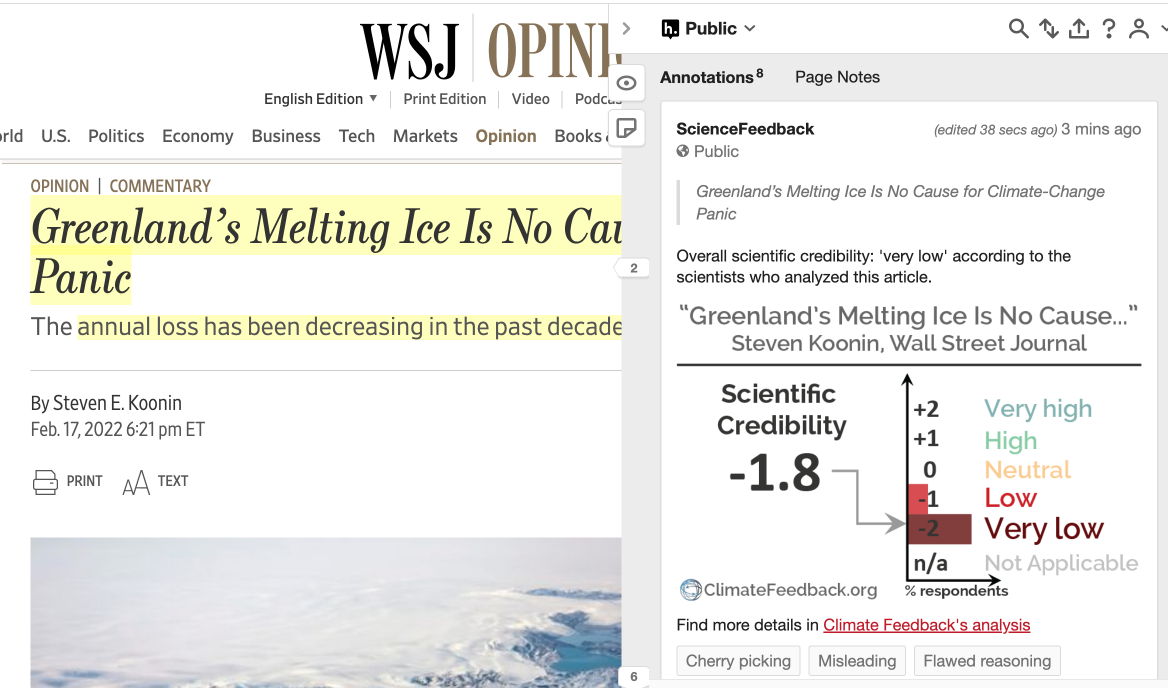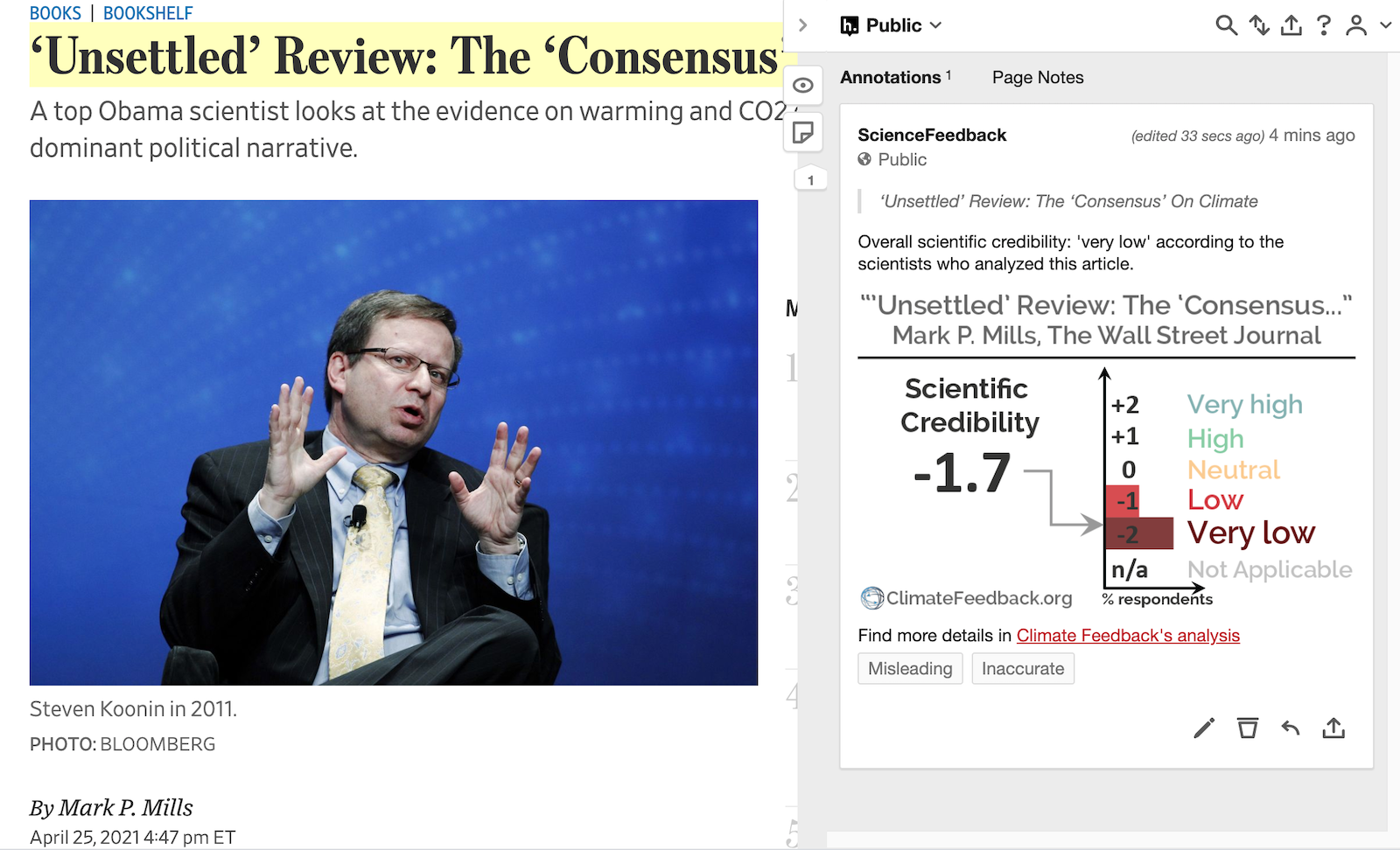- Climate
Fred Singer incorrectly claims sea level rise is not caused by climate change
Key takeaway
Global sea level has risen significantly over the last century, and at an accelerating rate. Multiple lines of evidence clearly demonstrate that this is largely due to the expansion of warming seawater (an inescapable consequence of the laws of physics) and the melting of glacial ice on land.
Reviewed content

Verdict:
Claim:
Sea-level rise does not seem to depend on ocean temperature, and certainly not on CO2
Verdict detail
Flawed Reasoning: Singer cherry-picks an arbitrary time period (1915-1945) and a single estimate of sea level rise published 28 years ago to inaccurately claim that sea level rise has not accelerated. He then incorrectly concludes that this means global temperature does not affect sea level rise.
Full Claim
Currently, sea-level rise does not seem to depend on ocean temperature, and certainly not on CO2. We can expect the sea to continue rising at about the present rate for the foreseeable future.
Fred Singer’s opinion is based entirely on a cherry-picked comparison of sea level rise between 1915 and 1945 and a single study published in 1990, claiming a lack of accelerating sea level rise despite continued warming. But in fact, modern research utilizing all available data clearly indicates that sea level rise has accelerated, and is unambiguously the result of human-caused global warming.
Since the 1990s for example, satellites have measured an acceleration in the rate of global sea level rise:

Figure – Global mean sea level (blue), after removing an estimate for the impacts of the eruption of Mount Pinatubo (red), and after also removing the influence of El Niño (green), fit with a quadratic (black). From Nerem et al. (2018)
The latest IPCC report summarized scientists’ understanding of the factors responsible for sea level rise:
“Ocean thermal expansion and glacier melting have been the dominant contributors to 20th century global mean sea level rise. Observations since 1971 indicate that thermal expansion and glaciers (excluding Antarctic glaciers peripheral to the ice sheet) explain 75% of the observed rise (high confidence). The contribution of the Greenland and Antarctic ice sheets has increased since the early 1990s, partly from increased outflow induced by warming of the immediately adjacent ocean. Natural and human-induced land water storage changes have made only a small contribution; the rate of groundwater depletion has increased and now exceeds the rate of reservoir impoundment. Since 1993, when observations of all sea level components are available, the sum of contributions equals the observed global mean sea level rise within uncertainties (high confidence).”

Research Scientist, ECMWF/Met Office
This claim severely misrepresents the scientific understanding of the processes responsible for observed changes in global sea level. Understanding and attributing the causes of changes in global sea level is an area of active research and there are genuine uncertainties, but there is a clear consensus on the important roles for ocean thermal expansion and addition of mass to the oceans from melting glaciers and ice caps during recent decades. For example, the following paper by Church et al. (2008)* summarizes the independent lines of evidence for changes in sea level from satellite altimeter and tide gauge measurements and how these changes can be explained by a combination of thermal expansion and exchange of mass (either liquid water or ice) between the oceans and continents:

Figure – Global sea‐level budget from 1961 to 2008. (left) The observed sea level using coastal and island tide gauges (solid black line with grey shading indicating the estimated uncertainty) and using satellite altimeter data (dashed black line) with thermal expansion and glaciers melting components; terrestrial storage (e.g. dams) partially offsets other contributions to sea‐level rise. (right) The observed sea level and the sum of components.
- Church et al (2011) Revisiting the Earth’s sea‐level and energy budgets from 1961 to 2008, Geophysical Research Letters

Professor, Potsdam University
This claim is against the basic laws of physics—warming causes thermal expansion of sea water and thereby sea-level rise, full stop. This is true regardless of whether this effect can be detected in a cherry-picked short time interval with poor data quality.
There is a clear relationship between the accelerating rate of sea-level rise and the increasing global temperature, which is shown in this post (including the figure below).




